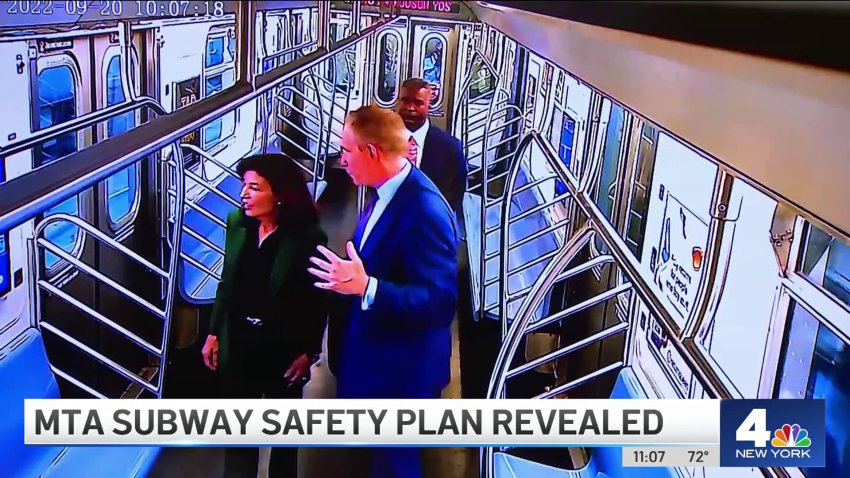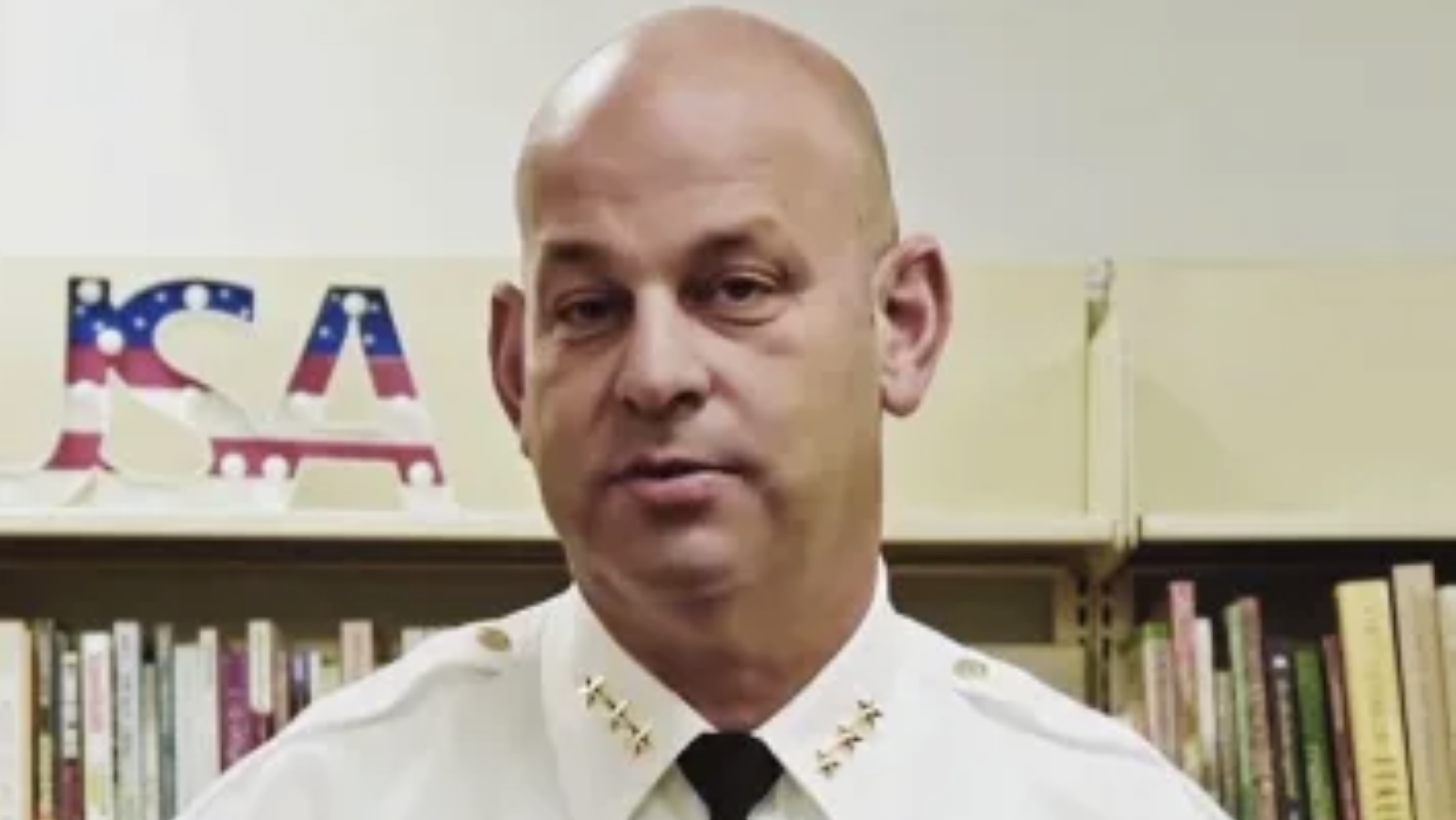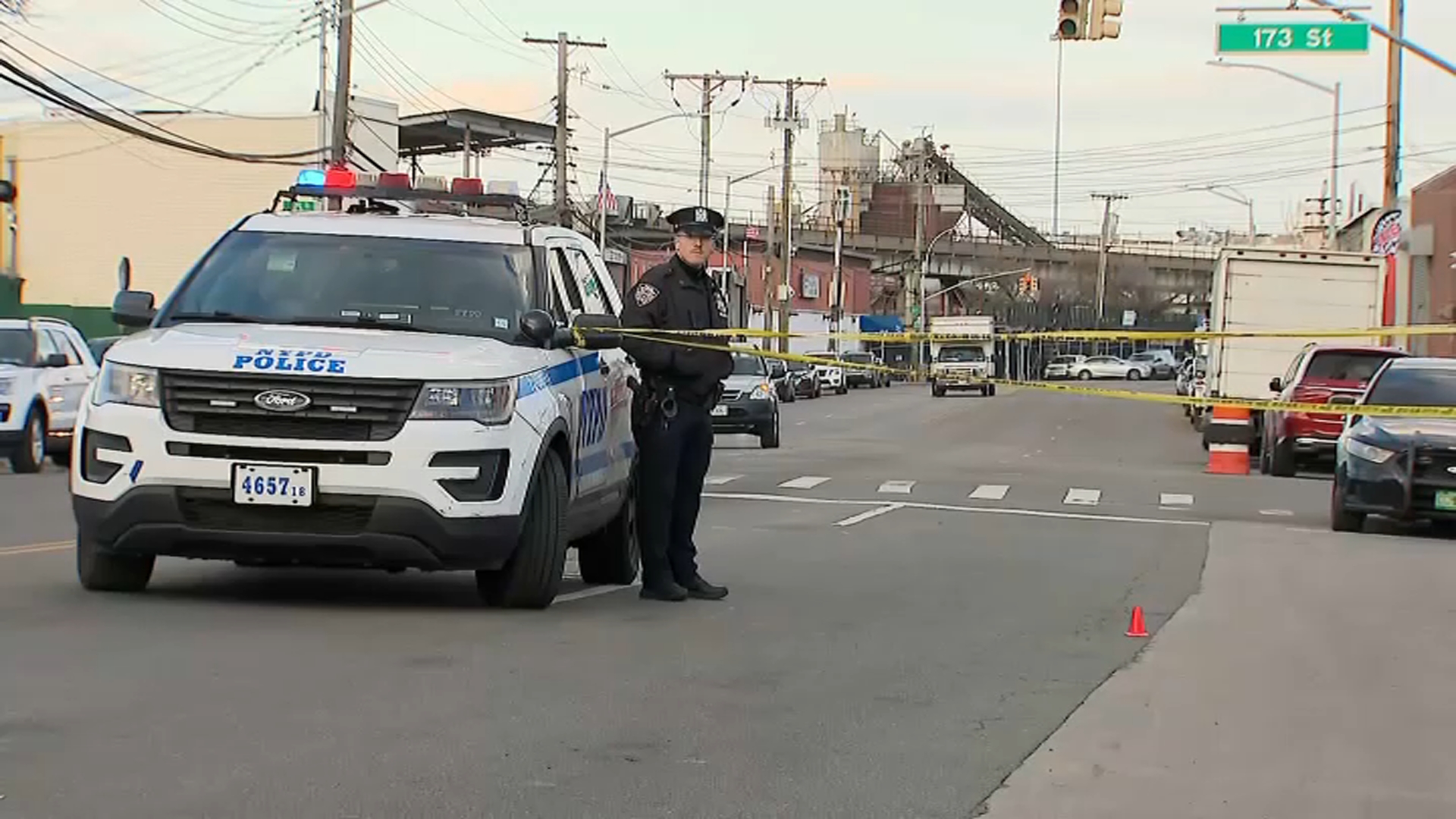The MTA is taking new action to make the subway safer by installing security cameras in every New York City subway car. Andrew Siff reports.
What to Know
- The MTA will install security cameras in every New York City subway car -- one of the latest measures to deter crime and enhance safety in the underground transportation system, Gov. Kathy Hochul announced Tuesday.
- The funding will allow for the purchase of 5,400 cameras to be installed on 2,700 subway cars, with two cameras per car.
- Additionally, the program will fund approximately 3,800 cameras expanding coverage in about 130 subway stations.
The MTA will install security cameras in every New York City subway car -- one of the latest measures to deter crime and enhance safety in the underground transportation system, Gov. Kathy Hochul announced Tuesday.
The cameras installation will be across the entire fleet of subway cars, according to the governor.
Watch NBC 4 free wherever you are
"People are still concerned about transit crime, it's a statement of fact," Hochul said. "You think big brother is watching you on the subways? You’re absolutely right. That’s is our intent."

Get Tri-state area news delivered to your inbox with NBC New York's News Headlines newsletter.
Roughly $5.5 million dollars in funding will go to the security camera plan, with $2 million in funding coming from the federal Urban Area Security Initiative under the U.S. Department of Homeland Security Preparedness Grants. The remaining $3.5 million will come from the MTA.
The pilot program so far has cameras scattered on about 100 train cars along the following lines: 2,4,5,6 E, F, M, G and R.
News
However, the funding will allow for the purchase of 5,400 cameras to be installed on 2,700 subway cars, with two cameras per car. Additionally, the program will fund approximately 3,800 cameras expanding coverage in about 130 subway stations.
In all, the transit agency will have about 12,700 cameras on 6,400 subway cars when all is said and done.
The move is an attempt to enhance security and increase passenger confidence in mass transit safety. The hidden cameras will have video only, no audio.
"If you prey on New Yorkers — or damage MTA facilities — we are gonna have pictures of you," said MTA Chairman Janno Lieber.
He insisted that the new cameras don't break down like cameras the MTA has used in the past at stations, meaning maintenance won't present as much of a challenge. That posed a problem back in April during the shooting aboard a train at the Sunset Park subway station that prompted the security upgrade, when the suspect in that incident allegedly opened fire and injured more than a dozen people — while station cameras didn't work.
"I have high confidence it will work. And on the day of the Sunset Park shooting, we got dozens of images of that assailant," Lieber said.
There are other objections to the new system as well. The New York Civil Liberties Union said that not only is there "no evidence this massive expansion of subway cameras will improve safety," but also that it presents a possibly issue regarding privacy.
"Hochul’s announcement is even more worrying given that the MTA has been completely secretive and has not disclosed any information, policies, or audits about its camera and software systems: the scope of information that is collected and analyzed, how long it is retained for, how law enforcement uses the information, who the information is shared with, and whether any of the deployed technologies show discriminatory impact or threaten people’s fundamental rights," a statement from the NYCLU read. "Living in a sweeping surveillance state shouldn’t be the price we pay to be safe."
Just last month, investigators said that since January, there have been five murders, eight rapes, 347 assaults and 365 robberies in the city's subway and transit system.
Violent crime in the subway system was up nearly 57% in July compared with the same time period a year ago, statistics show. Those numbers don't consider the possible impact of post-pandemic reduced ridership.



